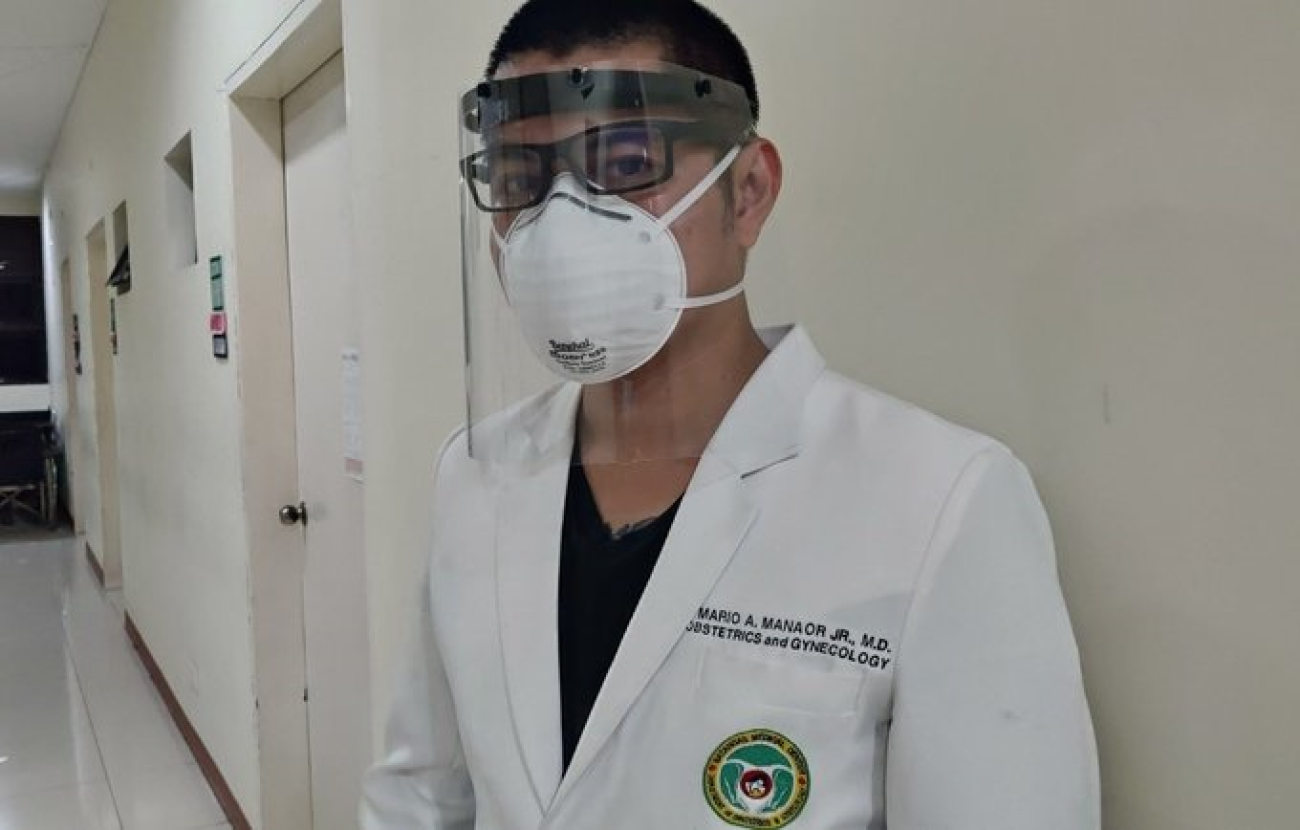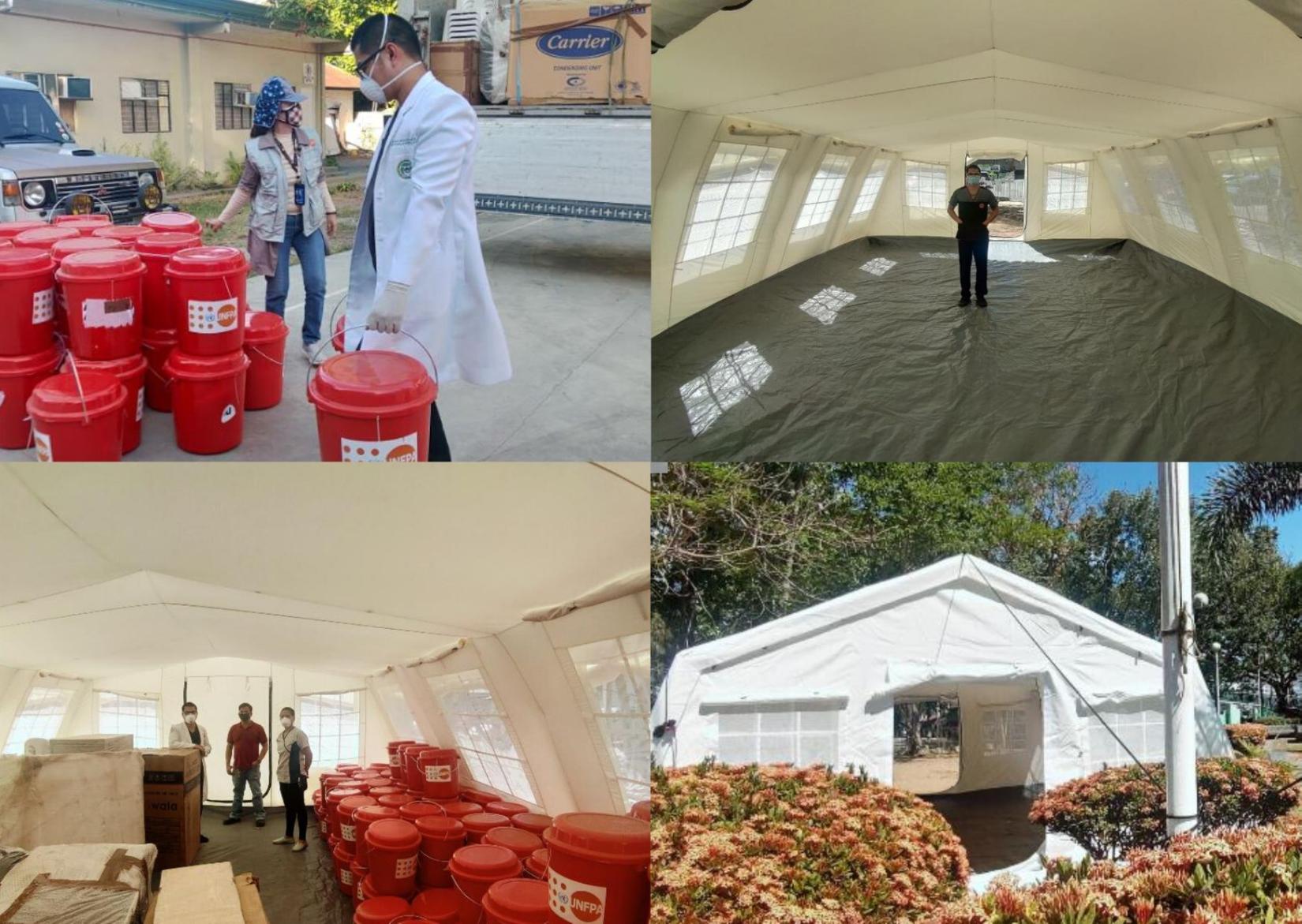Young doctor puts off going home to care for Taal and COVID-19 patients

Thirty-one-year-old Dr. Mario Manaor braves a volcanic eruption and COVID-19, refusing to go home
Dr. Mario Manaor Jr., a 31-year-old doctor working in Batangas Medical Center (BATMC), has not been home for three months. Since January 2020, when Taal Volcano erupted, Doctor Mario has been sleeping in the hospital, instead of going home, in order to support his fellow doctors. Now, because of COVID-19, Dr. Mario has decided to stay in the hospital, away from his family, a little longer.
After the ashfall came a virus
Doctor Mario started his duties as Chief Resident of ATMC’s obstetrics and gynecology department in January 2020. In the same month, Taal Volcano erupted, affecting nearly 460,000 people within the 14- kilometer radius of the volcano, including 125,000 women of reproductive age. Among the latter were more than 7,000 expectant mothers.
All the hospitals within the radius became non-functional. “The number of our patients doubled. We accommodated patients from outside our province too, including Laguna and Cavite,” Dr. Mario recalls.
Then, on 30 January, the country declared its first case of novel coronavirus disease (COVID-19). Shortly thereafter, BATMC was declared a COVID-19 center by the Department of Health (DOH). Doctor Mario’s home is only 83 kilometers away, but because of the health crisis, it seemed so much farther away. Doctor Mario still could not go home.
Health and protection supplies run out
Taal volcano spewed smoke and ash for weeks, with ash reaching as far Metro Manila, 66 kilometers away, and causing a run on protective face masks. COVID-19 exacerbated the already tightening supply. As the number of COVID-19 confirmed cases soared globally and in the Philippines, the demand for personal protective equipment (PPE), including face masks, skyrocketed, making these items even harder to acquire.

Leaving no one behind
The United Nations Population Fund (UNFPA) in the Philippines was among the first to provide masks to front-liners in provincial and district hospitals, rural health units, and other medical facilities in Batangas.
On 20 March, UNFPA donated masks to support families affected by the Taal Volcano eruption, as part of its partnership with the DOH Center for Health Development (CHD) Region IVA, and in coordination with the Provincial Department of Health Office (PDOHO), the Provincial Health Office (PHO) and the Provincial Social Welfare and Development Office (PSWDO) in Batangas.
A week later, and in response to COVID-19 UNFPA delivered emergency tents to the Batangas Province, to expand hospital spaces for maternity care, protection of women and children, and triage for COVID-19 response. UNFPA also provided hygiene kits to pregnant and lactating women in the hospital.
“UNFPA’s support was appreciated as it was very timely,” said Dr. Perez of DOH-CHD Region IVA.
“The emergency tents in particular will help ensure the continuity of health services and will allow us to create much needed additional space for COVID-19 patients,” he added.
Seeing his patients safely home
“We feel upgraded, said Dr. Mario. “No matter what our challenges are, whether from Taal or from COVID-19, we are committed to overcoming them. But this is more achievable if you have a support system. Thank you, UNFPA, for giving us a sense of relief and hope,” Dr. Mario said, smiling behind the mask.
Dr. Mario will one day be able to come home to his family. But for now, he is gratified just to send his patients safely home.

